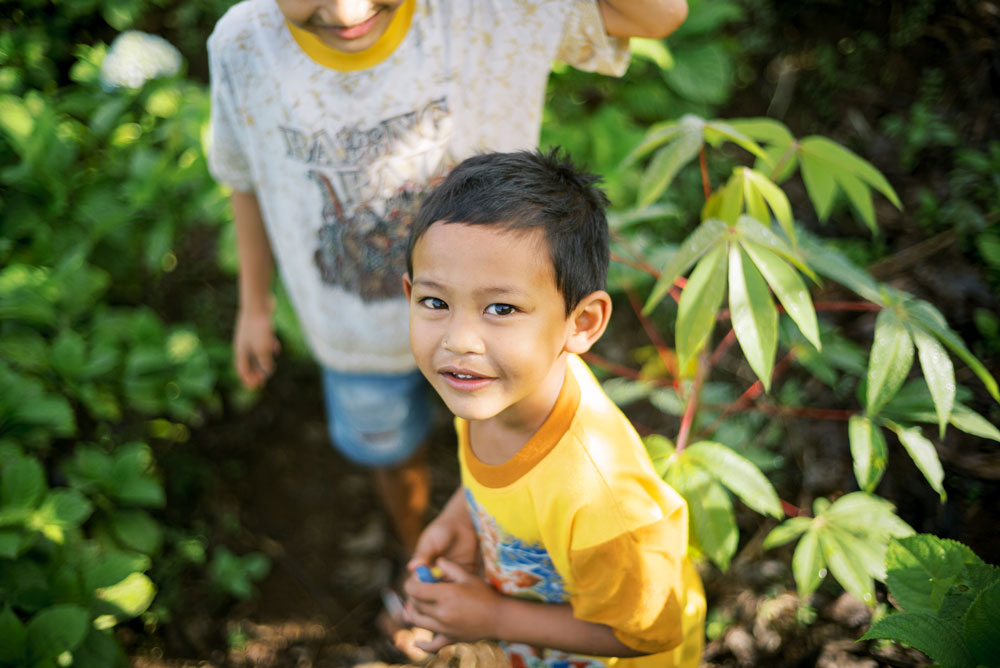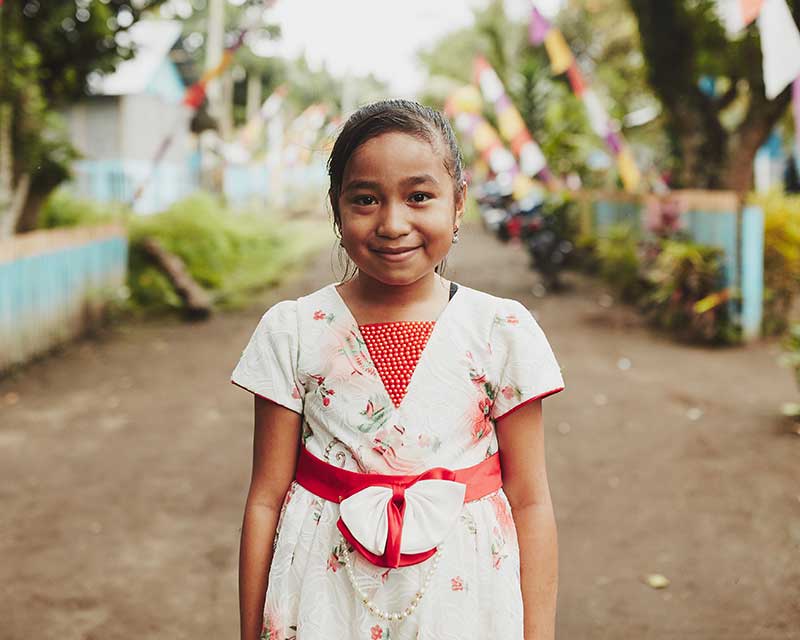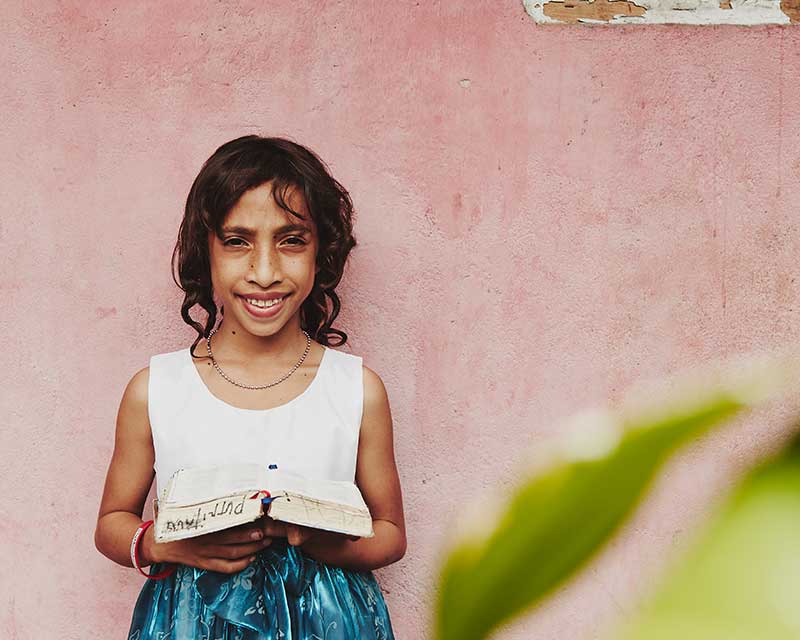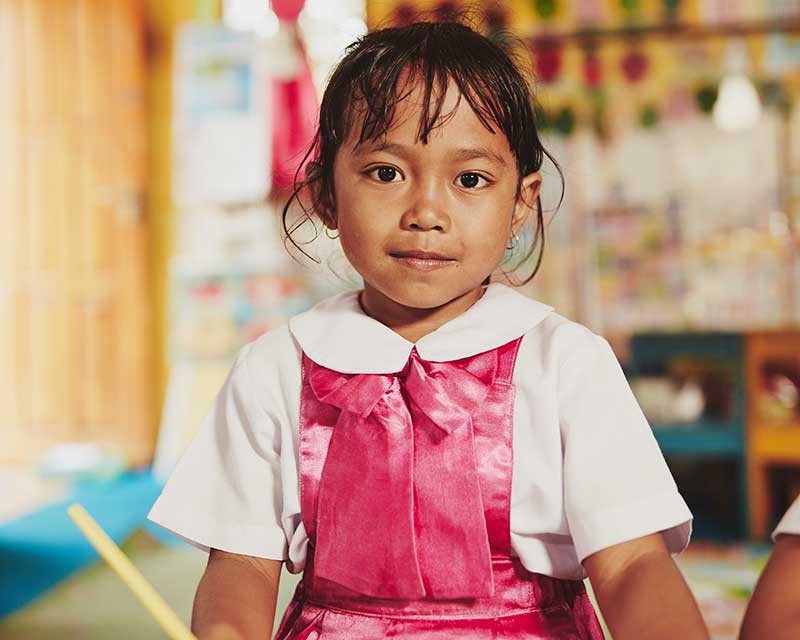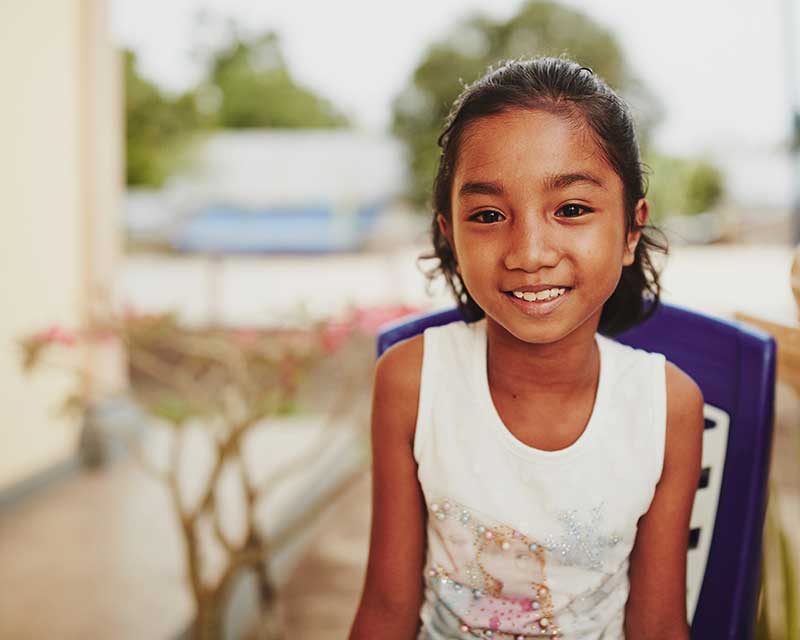Indonesia is a highly diverse society, with a wide mix of people and cultures influenced by Oceania, Asia, and Europe. There are hundreds of ethnic groups, and more than 600 distinct languages are spoken.
Indonesia is the fourth-most populous country in the world and its urban growth rate is enormously high. Many of Indonesia’s more than 17,000 islands are at high risk of earthquake and volcanic eruption. Hundreds of thousands of families have been displaced and severely affected by natural disasters in recent years.
Poverty and pronounced inequality persist throughout Indonesia, particularly in rural areas. In these regions, 30.8 per cent of children under 5 years of age are affected by stunting due to poor nutrition. Many rural communities lack basic infrastructure, such as internet access, roads and safe water. Children are particularly vulnerable to the impacts of poverty and almost one in 30 children die before reaching primary school, many from diseases resulting from poor sanitation and environmental conditions.
Our Indonesian church partners have been stepping up to address inequality in a number of ways. Churches are providing tutors to work with children in small groups and through home visits to ensure children are catching up with the education they have missed out on during COVID-19.
All child development centres are equipped with internet access and 60 per cent have dedicated computer labs for children to use. Where possible, children are able to share computers and tablets distributed by the project to enhance their education.
Compassion Indonesia has also established a link with a teaching college in Jakarta. Trainee teachers, as part of their studies, have to serve the local community. Compassion has linked a number of these university students with church partners to run virtual classes and mentor other Compassion assisted children. They have focused on subjects such as maths and science, and the children’s academic performance has improved as a result.
To break generational cycles of poverty, access to a diverse range of education and training opportunities are essential. Compassion's analysis of our program's effectiveness in Indonesia has shown that income-generation skills are key drivers of long-term economic self-sufficiency. That's why our local church partners are passionate about providing agency for youth to choose their own career path and have a variety of options for employment after school.
READ MOREkeyboard_arrow_down
READ LESSkeyboard_arrow_up
